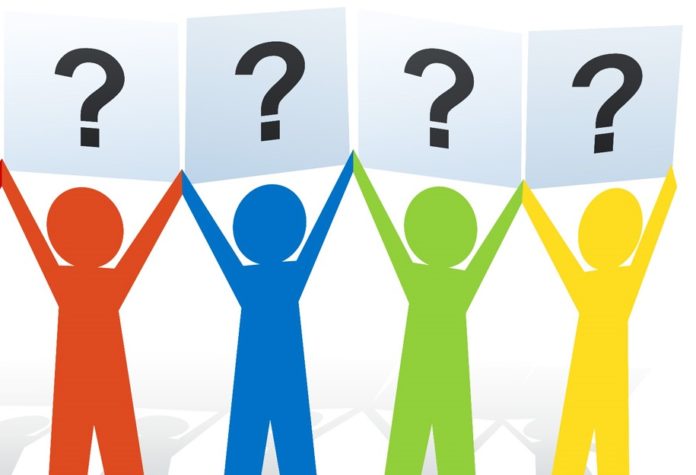Personality type tests are enormously well known, however on the off chance that you ask working analysts, they’ll reveal to you the outcomes are minimal superior to astrological signs. In any case, another examination, in light of enormous sets of personality data speaking to 1.5 million individuals, has convinced one of the staunchest critics of personality types to infer that possibly may be distinct type exist.
The study by the researchers at Northwestern University in Illinois identifies four personality types: reserved, role models, average and self-centered.
- Average: Average people are high in neuroticism and extraversion, while low in openness. This is the most common personality type.
- Reserved: The Reserved type is emotionally stable but not open or neurotic. They are not particularly extroverted but are somewhat agreeable and conscientious.
- Role models: Role models score low in neuroticism and high in all the other traits. They are good leaders, dependable and open to new ideas.
- Self-centered: Self-Centered people score very high in extraversion and below average in openness, agreeableness, and conscientiousness.
Though, their approach was nothing like the basis for widely used personality tests such as the Myers-Briggs, which spits out a personality type with acronyms like INTJ, for introversion-intuition-thinking-judgment, or ESFP.
Co-author William Revelle, said, “People have tried to classify personality types since Hippocrates’s time, but previous scientific literature has found that to be nonsense. Now, these data show there are higher densities of certain personality types.”
The idea of personality types remains controversial in psychology, with hard logical evidence difficult to discover. Past endeavors in view of small research groups made outcomes that frequently were not replicable.
The new research consolidated an option computational methodology with information from four polls, attracting in excess of 1.5 million respondents from around the globe. The surveys, created by the exploration group throughout the decades, have somewhere in the range of 44 and 300 inquiries. Individuals voluntarily take the online tests, attracted by the chance to get feedback about their own personality.
Luis Amaral, Erastus Otis Haven Professor of Chemical and Biological Engineering at the McCormick School of Engineering said, “Personality types only existed in self-help literature and did not have a place in scientific journals. Now, we think this will change because of this study.”
“A study with a dataset this large would not have been possible before the web. Previously, researchers would recruit undergrads on campus and maybe get a few hundred people. Now, we have all these online resources available, and data is being shared.”
“Machine learning and data science are promising but can be seen as a little bit of a religion. You still need to test your results. We developed a new method to guide people to solve the clustering problem to test the findings.”
The model primarily revealed 16 personality clusters using traditional clustering methods. The researchers then imposed additional constraints, winnowing down the clusters to four distinct personality types.
In order to ensure the new clusters of types were accurate, the researchers used a notoriously self-centered group, teenaged boys, to validate their information.
Amaral said, “We know teen boys behave in self-centered ways. If the data were correct and sifted for demographics, they would they turn out to be the biggest cluster of people.”
Indeed, young males are overrepresented in the Self-Centered group, while females over 15 years old are vastly underrepresented.
Along with serving as a tool that can help mental health service providers assess for personality types with extreme traits, Amaral said the study’s results could be helpful for hiring managers looking to ensure a potential candidate is a good fit or for people who are dating looking for an appropriate partner.
“And good news for parents of teenagers everywhere: as people mature, their personality types often shift. For instance, older people tend to be less neurotic yet more conscientious and agreeable than those under 20 years old.”
Amaral said, “When we look at large groups of people, it’s clear there are trends, that some people may be changing some of these characteristics over time. This could be a subject of future research.”
The research was funded by a gift from Mac and Leslie McQuown along with support from Department of Defense Army Research Office, and the National Science Foundation.
Julianne Hill, director of strategic communications at the McCormick School of Engineering, is the author of this story.
The new study appears in Nature Human Behaviour. The findings potentially could be of interest to hiring managers and mental health care providers.
The personality types are based on five widely accepted basic character traits:
- Neuroticism: The tendency to frequently experience negative emotions such as anger, worry, and sadness, as well as being interpersonally sensitive.
- Extraversion: The tendency to be talkative, sociable and enjoy others; the tendency to have a dominant style.
- Openness: The tendency to appreciate new art, ideas, values, feelings and behaviors.
- Agreeableness: The tendency to agree and go along with others, rather than assert one’s own opinions and choices.
- Conscientiousness: The tendency to be careful, on time for appointments, to follow rules and to be hard working.
